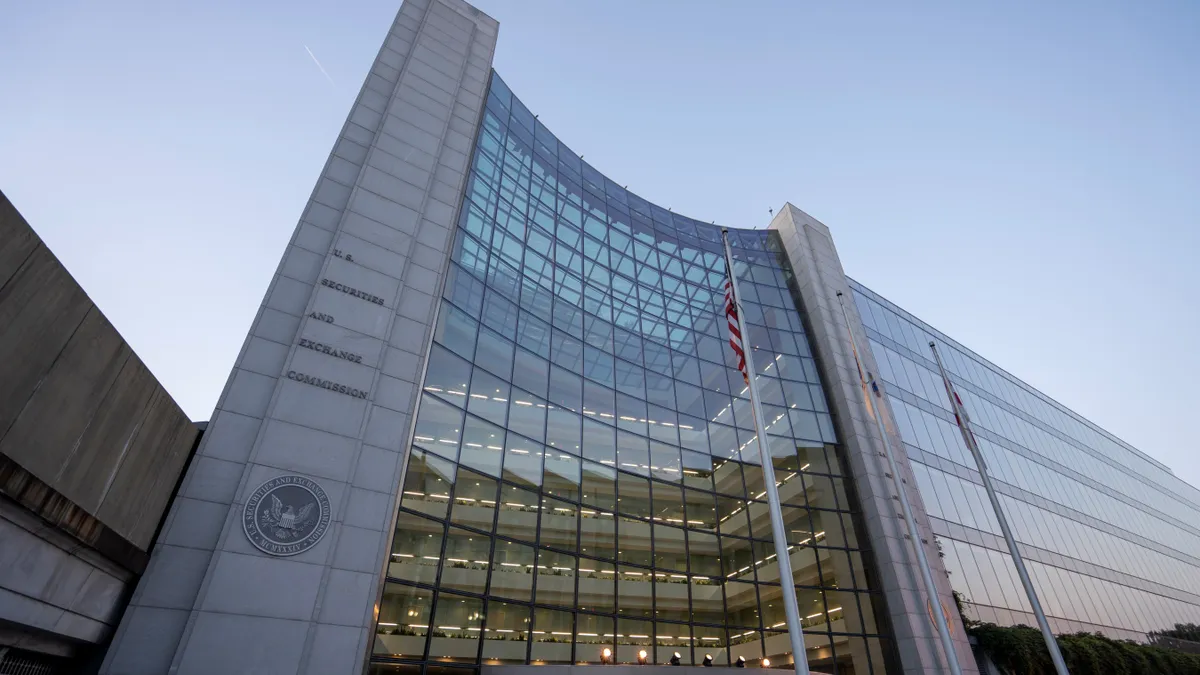Dive Brief:
- The Securities and Exchange Commission said two groups of Vanguard investment funds are free to exclude a shareholder proposal that asked their boards to create more transparent procedures for ensuring the funds don’t hold or recommend investments that “substantially contribute to genocide or crimes against humanity.”
- The SEC wrote in a Nov. 1 no-action letter that it would not pursue enforcement actions if the Vanguard funds excluded the proposal from their 2025 proxy materials.
- This mirror’s the agency’s 2020 decision to allow Vanguard to exclude such proposals when the firm first received the proposal from some of the same shareholders in 2018. The agency said it agreed with Vanguard’s assessments that the proposals were excludable because the submitters did not continuously hold stock in one set of funds but the proposal affects the normal business operations of the other set of funds.
Dive Insight:
The SEC in 2020, then under the Trump administration, agreed with Vanguard’s prior assessment that the proposal put forward in 2018 would be considered micromanagement and an intrusion into the funds’ normal business operations, according to supplemental information sent to the SEC. Since then, the agency’s no-action process made amendments in 2021 to allow for shareholder proposals that concern issues of “broad societal impact.”
However, Vanguard said that the subsequent guidance should not prohibit the SEC from reaching the same conclusions for the second group of funds in this case. The agency’s Division of Investment Management agreed, and will allow the firm to exclude the proposal from the second group of funds on the same ordinary business operations exclusion.
“There appears to be a basis for your view that the Proposal may be excluded in reliance on Rule 14a-8(i)(7), as relating to the funds’ ordinary business operations,” Lisa Larkin, senior counsel in the SEC’s Investment Management division wrote. “Accordingly, we will not recommend enforcement action to the Commission.”
Vanguard first received the proposal asking the funds to reevaluate their transparency on genocide and human rights in 2018. This proposal pointed to a group of holdings the funds have in PetroChina, which is owned by the China National Petroleum Corporation and is Sudan’s largest oil partner. The shareholders, at the time, said the holding was therefore helping fund a genocide in Sudan.
When fighting the no-action process in 2020, Eric Cohen — the chair of Investors Against Genocide who represented the initial proposal’s proponents — said that checking the details of a securities holding to ensure it does not contribute to genocide are “beyond the abilities and resources of a typical investor.” However, he said such a determination is not too complex for Vanguard.
“Avoiding genocide-related securities may introduce some complications into a funds’ security selection process, but the Proposal appropriately leaves these details to the technical experts within the Fund who are entirely capable of successfully and efficiently implementing them,” Cohen wrote at the time.
Vanguard began the no-action process for the recent shareholder proposals in September, where it first argued the proposals should be excluded. The process has come back into view this year on the heels of ExxonMobil skipping straight to suing a pair of its shareholders over a proposal on emissions reductions targets, rather than utilize the SEC-run process.
A shareholder rights advocacy group recently urged the agency to maintain its no-action process, and noted in that letter that the SEC viewed an increasing number of proposals sent for no-action requests as “micromanagement” in the most recent proxy season.








